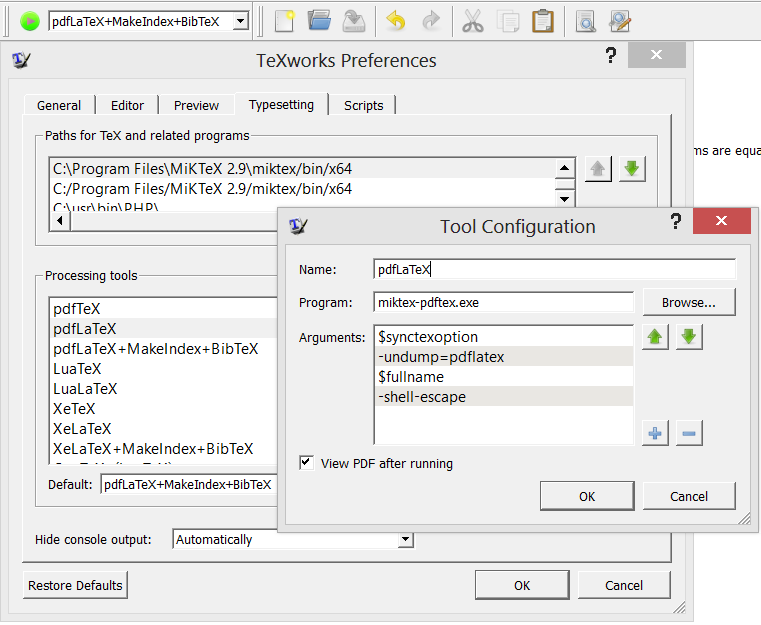
%% Inserting this rule causes OLON problems. #pred compromised(Rule,Conclusion) :: 'the conclusion from rule is compromised'. % A rule is compromised if it is either refuted or defeated.

Overrides(Other_Rule,Other_Conclusion,Rule,Conclusion),Īccording_to(Other_Rule,Other_Conclusion). #pred refuted_by(R1,C1,R2,C2) :: 'the conclusion from rule is refuted by the conclusion from rule :. % A rule is refuted if there is another rule that conflicts with it and overrides it. Not overrides(Other_Rule,Other_Conclusion,Rule,Conclusion). Not overrides(Rule,Conclusion,Other_Rule,Other_Conclusion), Not compromised(Other_Rule,Other_Conclusion), Not refuted(Other_Rule,Other_Conclusion), Opposes(Rule,Conclusion,Other_Rule,Other_Conclusion), #pred rebutted_by(R1,C1,R2,C2) :: 'the conclusion from rule is rebutted by the conclusion from rule :-Īccording_to(Other_Rule,Other_Conclusion), % A rule is rebutted if it conflicts with another rule, neither is refuted, the rebutting rule is not compromised, and there is no priority between them. #pred overrides(R1,C1,R2,C2) :: 'the conclusion from rule overrides the conclusion from rule opposes(R1,C1,R2,C2) :: 'the conclusion from rule conflicts with the conclusion from rule Oppositions must be stated explicitly, and must be ground at evaluation time. %#pred according_to(R,C) :: 'according to rule the conclusion holds'. % #pred according_to(R,flies(X)) :: 'according to rule flies'. For example, to improve the display you can encode % they can also be customized to be displayed in a more friendly way, as can the % These are the three predicates that the user should use in their code. % An implementation of Logic Programming with Defaults and Argumentation Theories The user can then query the `legally_holds/2` predicate to determine whether a conclusion holds, or is defeated, and why. The user then indicates what conclusions from what rules contradict one another using the `opposes/4` predicate, and indicates which conclusions from which rules override which other conclusions from which other rules using the `overrides/4` predicate. The user uses the `according_to/2` predicate to set out what rule has made what conclusion. The user interface for this theory is very simple. The argumentation theory implemented below is based on the default argumentation theory implemented in ()'s defeasibility method, which is described in a paper entitled (). In order to be able to make statements about which rules override which other rules, and in order to be able to include the defeating relationships in the explanations generated for the user, we need to create an argumentation theory.
#Swi prolog org code
s(CASP) code also currently generates a lot of error messages, so we use the style_check and set_prolog_flag commands to remove warnings about singleton variables and discontiguous predicate definitions, and missing s(CASP) predicates. In order to use s(CASP) inside of SWI-Prolog, we need to load the scasp library, which is done with the following command. A video demonstrating L4-Docassemble is ().

A modified version has also been used to power the demonstration of L4-Docassemble, which is also (). The original version of the encoding, which was used to demonstrate the capability of these tools to detect legislative drafting errors, is (). That encoding is work that I did at Singapore Management University's Centre for Computational Law as part of its research program. It uses the example of an encoding of (), which describes when a lawyer can and cannot accept an executive appointment inside an organization other than their own firm.
#Swi prolog org how to
This SWISH notebook is a demonstration of how to "do" Rules as Code in SWISH, with the s(CASP) module for SWI-Prolog.

Rules as Code is a movement in the public service to take advantage of the opportunities presented by encoding legislative and regulatory requirements apart from other kinds of knowledge. # Rules as Code Demonstration in SWISH and s(CASP)


 0 kommentar(er)
0 kommentar(er)
